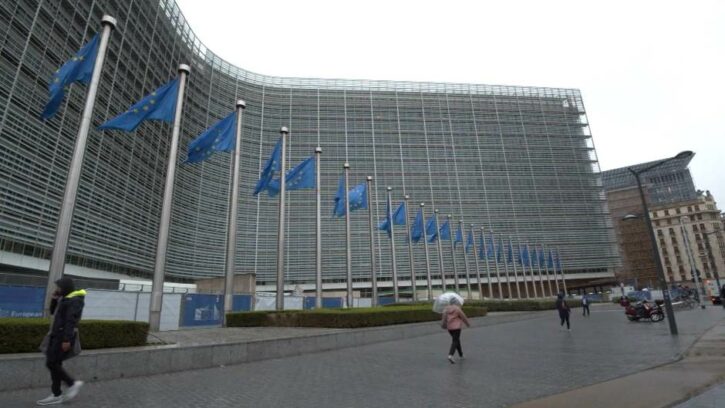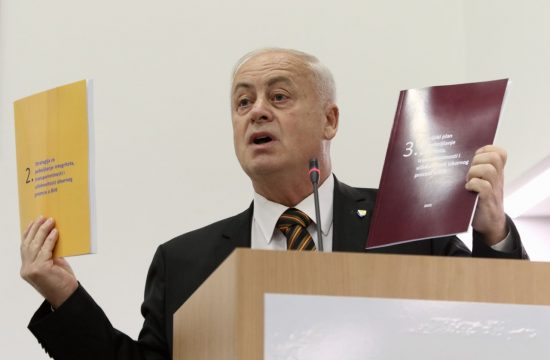
The European Commission (EC) said on Thurday that it is aware that certain landmarks in Bosnia and Herzegovina are named after “controversial individuals linked to the Second World War or the 1992-1995 war” and called upon authorities in the country to “criminally punish, among others, the public condoning, denying or grossly trivialising crimes of genocide, crimes against humanity and war crimes in a manner that is likely to incite to violence or hatred.”
The EC statement came as a response to a question by European Parliament members Dominique Bilde, who cited a report from the Courrier des Balkans from 2016, saying that some streets in the southern Bosnian city of Mostar “were named after individuals such as Mile Budak and Jure Francetic, who was commander of the Black Legion and ‘directly involved in the massacre of Jews and Serbs from Bosnia and Herzegovina’.”
She also said that the Israeli State in 2017 “officially condemned the naming of a Sarajevo primary school after Mustafa Busuladzic, whose writings showed an affinity with the Nazi regime and the Ustashi (Nazi-allied Croatian WWII forces).”
“The EU has long focused on remembering crimes against humanity. Within the context of the stabilisation and association dialogue with Bosnia and Herzegovina, and taking into account Mostar’s status as a candidate for European Capital of Culture 2024 , what will the High Representative do to encourage the removal of such references to controversial public figures?” she asked.
The full response by European Commissioner for Neighbourhood and Enlargement, Oliver Varhelyi, on behalf of the EC, follows:
“The Commission is aware that several landmarks in Bosnia and Herzegovina (streets, squares and buildings) are named after controversial individuals linked to the Second World War or the 1992-1995 war, including war criminals convicted by international tribunals.
The 2008 Council Framework Decision on Combatting Racism and Xenophobia, which is part of the EU acquis, calls upon all EU Member States to criminally punish, among others, the public condoning, denying or grossly trivialising crimes of genocide, crimes against humanity and war crimes in a manner that is likely to incite to violence or hatred. All candidate countries and potential candidates are encouraged to do the same.
The Commission closely monitors this matter and will continue to reiterate in the political dialogue with Bosnia and Herzegovina the need to “take concrete steps to promote an environment conducive to reconciliation in order to overcome the legacies of the war”, as listed among the key priorities set by the Commission’s Opinion on its application for EU membership. The Opinion also notes that “revisionism and genocide denial contradict the most fundamental European values”. The upcoming 25th anniversary of the signature of the Dayton Peace Agreement will be a chance to reflect also on the issue of offensive symbols in the public sphere.
In the case of Mostar, the city council, which is responsible for street names, has not been in place since 2012. Elections for a new city council will be held in December 2020. The title of the European Capital of Culture 2024 beyond the EU was awarded to the city of Bodo, Norway.”




